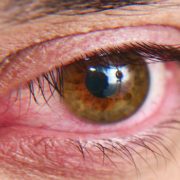FDA approves BioMarin’s BRINEURA for children under 3 years with CLN2 disease
U.S. Food and Drug Administration approves BioMarin’s BRINEURA (cerliponase alfa) for children under 3 years with CLN2 disease
SAN RAFAEL, Calif., July 24, 2024 — BioMarin Pharmaceutical Inc. (Nasdaq: BMRN) today announced that the U.S. Food and Drug Administration (FDA) has approved the company’s supplemental Biologics License Application (sBLA) for BRINEURA® (cerliponase alfa) to slow the loss of ambulation in children of all ages with neuronal ceroid lipofuscinosis type 2 (CLN2 disease), also known as tripeptidyl peptidase 1 (TPP1) deficiency. Previously, BRINEURA was indicated in symptomatic children 3 years of age and older with late infantile CLN2 disease. This expanded indication now includes children of all ages with CLN2 disease, regardless of whether they are symptomatic or presymptomatic.
“Today’s approval represents a significant step forward in enabling children to be treated with BRINEURA as early as possible, when we can have the greatest impact in altering the natural course of disease,” said Hank Fuchs, M.D., president of Worldwide Research and Development at BioMarin. “We know that every day counts for families affected by serious genetic conditions such as CLN2 disease, which is characterized by a rapid onset of neurodegenerative symptoms. We have been working diligently since BRINEURA’s initial approval to support this expanded use in children of all ages, even before they begin to show symptoms.”
The sBLA is supported by data from Study 190-203, a Phase 2, open-label, multicenter trial evaluating BRINEURA treatment over the span of approximately three years in children aged 1-6 years at baseline, including eight children less than 3 years of age. Results from Study 190-203, which were presented at the 20th Annual We’re Organizing Research on Lysosomal Diseases meeting (WORLDSymposium) in February, showed that intraventricular (intracerebroventricular, ICV)-administered BRINEURA slowed the decline in motor function and delayed disease onset in children with CLN2 disease, including those who were under 3 years of age. BRINEURA’s safety profile has been well-characterized, and safety results in children under 3 years of age were similar to the known safety profile of the medicine. In addition to confirming that treatment initiated after 3 years of age significantly slows the progression of CLN2 disease, these are the first data to demonstrate that early treatment initiation before 3 years of age may result in delaying disease onset.
In Study 190-203, children were assessed for decline in the motor domain of the CLN2 Clinical Rating Scale. This domain measures ambulation, with normal function being a score of three and no function being a score of zero. Decline was defined as having a sustained two-point loss or an unreversed score of zero. In the children below 3 years of age treated with BRINEURA in the trial, none (0%) had a two-point decline or score of zero in the motor score by the final assessment (week 169). Among the eight treated children, seven were matched to 18 untreated children from a natural history cohort. Among the matched natural history comparators, 11 children (61%) experienced an unreversed two-point decline or score of zero by the final assessment. From baseline to final assessment, all seven matched BRINEURA-treated children below 3 years of age maintained a motor score of three, which represents a grossly normal gait, signifying a delay in disease onset.
“Receiving a CLN2 diagnosis is devastating for families as the disease is life-limiting and can severely impact a child’s daily functioning and quality of life from a very young age, with symptoms including seizures, speech and language deficits, impaired movement and vision loss,” said Ineka Whiteman, Ph.D., head of Research and Medical Affairs at the Batten Disease Support, Research, & Advocacy (BDSRA) Foundation. “The opportunity to start BRINEURA treatment earlier, even before the onset of symptoms, provides newfound hope for the families impacted by this rapidly progressive disease. Importantly, this expanded indication provides further impetus for early diagnosis of CLN2 disease, as we continue advocating for inclusion of CLN2 disease on the RUSP (Recommended Uniform Screening Panel) for newborn screening.”


 Reuters
Reuters







